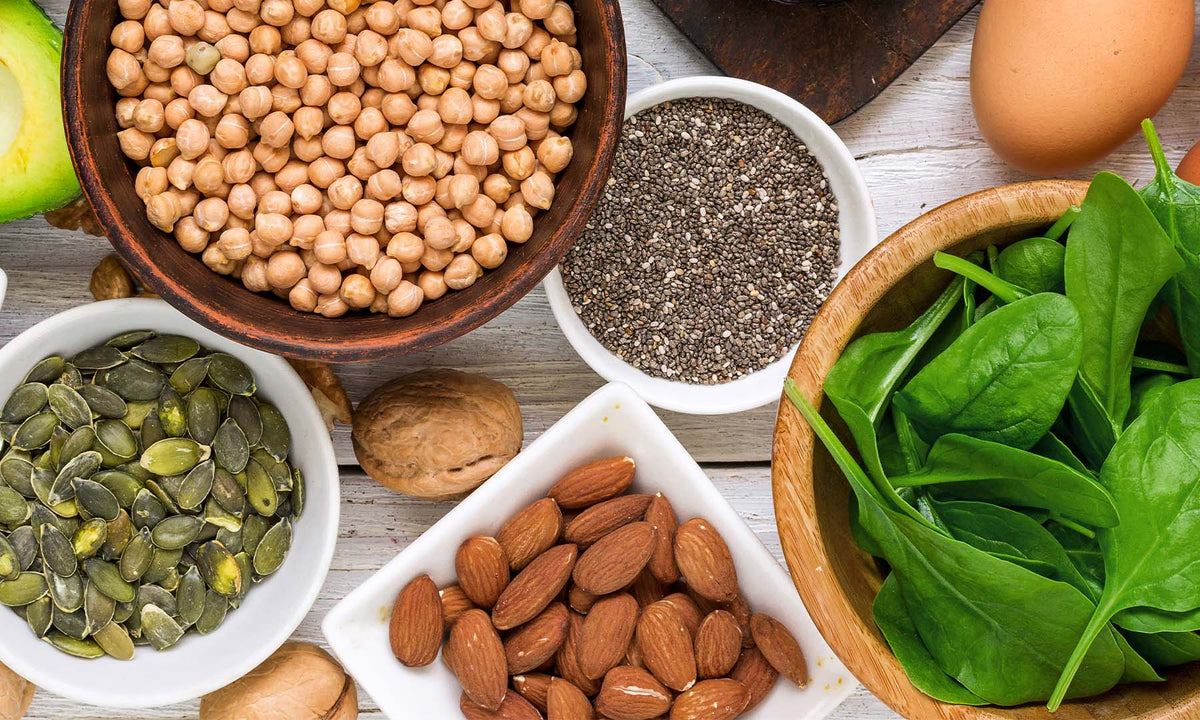Fats are a critical part of any diet, providing the body with its primary source of long term stored energy. Many other metabolic pathways, such as membrane formation and hormonal control, rely on an adequate fat supply to function. There are many different types of fats, some that are beneficial to health and some that are very detrimental. Understanding the role of fats is an essential part of developing a performance-based diet.
What are fats?
Fats are the primary long-term energy storage molecules of the body. All fats share the same backbone structure, called glycerol, and are distinguished by the attachment of 1 to 3 fatty acid chains. These fatty acid chains are mainly comprised of1many carbon atoms linked to one another, which forms the basis of their role as an energy storage molecule [1]. Aside from their energy storage role, fats serve many other essential functions throughout the body. There are three main types of fats, classified based on the nature of their fatty acid chains. These are saturated fats, unsaturated fats, and trans fats.
The role of fats in the body
- Long-term energy.As mentioned prior, fats function as the body’s primary long-term energy storage molecule. They are an efficient way to store energy due to their compact molecular structure [1]. By weight, fats can store more than twice the energy as carbohydrates and protein (there are nine calories per gram of fat compared to 4 calories per gram of carbohydrates or protein) [2]. Although fat metabolism cannot provide energy as quickly as carbohydrate metabolism, it is essential when carbohydrate sources are exhausted or not required. At rest and during low-intensity activity, fats are the body’s primary energy source as they have almost unlimited reserves, and rapid energy production is not required [3]. When fats are stored, they also provide warmth and protection to the body.
- Vitamin absorption.Fats help some vitamins, called fat-soluble vitamins, absorb into the body. These include vitamins A, D, E, and K, which play many roles, including immune support, bone health, and blood clotting [4].
- Membrane formation.Fats are also the main component in membrane formation. Membranes form the outer part of both the cell and the cell’s internal components. They form a protective barrier to contain the cell’s contents and shield it from the surrounding environment, and without them, our cells would not be able to function [5]. Membranes are also responsible for providing structure and rigidity to your entire body.
- Hormone synthesis.Many hormones are synthesised from fatty acids and therefore rely on fats as the key ingredient during their formation [6]. Hormones act as your body’s signalling and messenger molecules, controlling almost all essential systems such as growth, sleep, and digestion [7]. Effectively they tell your body what to do and when to do it.
Types of fat
Saturated fats are most commonly found in animal products such as meat and dairy, and some vegetable oils. They are called saturated fats because hydrogen atoms completely surround their fatty acid chain. Some sources have linked saturated fats with an increase in LDL cholesterol (bad cholesterol) levels, which may, in turn, increase the risk of heart disease and stroke [2]. Saturated fats should be limited in your diet, although they are acceptable to consume in relatively small amounts.
Unsaturated fats are most commonly found in foods such as nuts, seeds, and fatty fish. They are called unsaturated fats because their fatty acid chains are not completely surrounded by hydrogen atoms. This allows the chains to have “bends” in them, which limits their likelihood to cause blockages in arteries [1]. Unlike saturated and trans fats, unsaturated fats can help lower LDL cholesterol (bad cholesterol), decreasing the risk of cardiovascular disease [2]. There are many different kinds of unsaturated fats that have several reported health benefits, from maintaining bone and skin health to easing inflammation. Of particular note are omega-3 and omega-6 fatty acids. These are types of unsaturated fat that are considered essential, as the human body can only obtain them through consumption [8].
Trans fats are a chemically modified form of fat created to increase the shelf life and stability of food. They have many damaging effects on health, including raising LDL (bad) cholesterol levels and lowering HDL (good) cholesterol levels [2]. This has many implications for cardiovascular health, and the World Health Organisation estimates that trans-fat intake leads to more than 500,000 deaths per year [9]. If possible, trans fats should be avoided in your diet.
Practical applications
As one of the three primary macronutrients, understanding fats can play a significant role in optimising your health and performance.
Despite being the most effective energy source during exercise, carbohydrate metabolism alone cannot sustain long durations of activity. The metabolism of fats is vital for supplementing the energy provided by carbohydrates and becoming the primary energy source when carbohydrate stores are depleted [3]. For this reason, consuming adequate fats in your diet is vital for day-to-day function and both short and lengthy bouts of exercise.
Providing your body with adequate amounts of fat is also critical for the basic function of systems, which has a flow-on effect on your health and performance. As they are required to form membranes, all cells are reliant on fats to survive and function. Hormonal control is also heavily dependent upon fats, which dictates all systems in the body such as growth, repair, sleep, and digestion – the likes of which need to be optimised to perform at your peak [6].
Understanding the different types of fats and where to source them is of great importance when taking a healthy approach to your diet. Some fats, such as trans fats, in particular, can have significant adverse health implications and should be avoided as much as possible in your diet. Other fats, such as many types of unsaturated fats, have been linked to a wide array of benefits and should be included as part of a healthy, performance-based diet.
The radix solution
At Radix, we strive to create the best quality products for the best possible performance. With a focus on nutrient density, the Radix Nutrient Architecture(RNA) includes a daily target for overall fat quantity, as well as more detailed nutritional guidance on saturated fats, unsaturated fats, trans fats, omega-3, omega 6, and more. These recommendations are based on the most up-to-date nutrition science and set the standard for the quality of our meals. We source our fat content from superior ingredients such as seeds and olive oil, ensuring a large density of healthy fatty acids in our products. When it comes to dietary fat, we aim to provide your body with the best in order to maximise metabolic performance and minimise the risk of ill health and disease.




